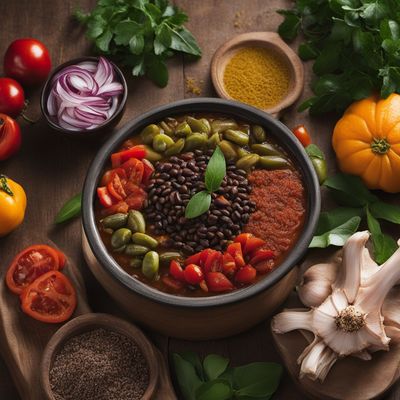
Ingredient
Oranges
The Citrus Delight
Oranges, known scientifically as Citrus sinensis, are a versatile and refreshing fruit that is beloved for its vibrant color, tangy flavor, and numerous health benefits. Whether enjoyed fresh, juiced, or used in various culinary creations, oranges are a staple in many cuisines around the world.
Origins and history
Oranges are believed to have originated in Southeast Asia, specifically in the region encompassing China, India, and Myanmar. They have a long history dating back thousands of years and have been cultivated and traded across different continents.
Nutritional information
Oranges are an excellent source of vitamin C, providing more than 100% of the recommended daily intake in a single fruit. They also contain dietary fiber, folate, potassium, and antioxidants, which contribute to overall health and well-being.
Allergens
Oranges may cause allergic reactions in individuals with citrus allergies.
How to select
When selecting oranges, choose fruits that are firm and heavy for their size. The skin should be smooth and brightly colored, without any soft spots or blemishes. Avoid oranges that feel overly soft or have a dull appearance.
Storage recommendations
To maintain the freshness of oranges, store them at room temperature or in the refrigerator. If storing in the refrigerator, place them in a perforated plastic bag to prevent moisture buildup. Oranges can be kept for up to two weeks, but their flavor and juiciness may diminish over time.
How to produce
Oranges can be grown by amateur gardeners in regions with a suitable climate, such as subtropical or Mediterranean areas. They require well-drained soil, regular watering, and protection from frost during colder months.
Preparation tips
Oranges can be enjoyed fresh as a snack, juiced for a refreshing beverage, or used in various culinary applications. They add a burst of citrus flavor to salads, desserts, marinades, and sauces. The zest and juice of oranges are commonly used in baking to enhance the flavor of cakes, cookies, and pastries.
Substitutions
Lemons or tangerines can be used as substitutes for oranges, although they may alter the overall flavor profile of the dish. Alternatively, orange juice or orange extract can be used to mimic the citrusy taste of oranges in certain recipes.
Culinary uses
Oranges are widely used in both sweet and savory dishes. They are commonly found in salads, marmalades, jams, and desserts such as cakes, pies, and sorbets. Oranges are also a popular ingredient in marinades, dressings, and sauces for meat and seafood dishes.
Availability
Oranges are cultivated in various regions around the world, including Spain, the United States, Brazil, and China. They are also commonly available in most grocery stores and supermarkets globally.
More ingredients from this category
Recipes using Oranges » Browse all

Feijoada de Lulas with a Twist
Brazilian Delight: Feijoada de Lulas with a Flavorful Twist

Bolo de Chila with a Twist
Pumpkin Delight: A Modern Twist on Bolo de Chila

Brazilian-style Hot Pot
Feijoada Hot Pot: A Brazilian Twist on a Classic Chinese Dish

Bocconotto - Italian Sweet Pastry
Delizioso Dolce: Irresistible Bocconotto - A Sweet Italian Delight

Jesuítas - Spanish Almond Pastries
Heavenly Almond Delights: Spanish Jesuítas Pastries

Pardulas - Sardinian Sweet Cheese Pastries
Heavenly Sardinian Delights: Pardulas - Sweet Cheese Pastries

Mediterranean Tiramisù
Sun-kissed Tiramisù: A Mediterranean Twist on an Italian Classic

Vegetarian Feijoada
Savory and Satisfying Vegetarian Feijoada: A Meatless Twist on a Brazilian Classic

Testa di Turco - Italian Almond Cake
Delizioso Dolce: A Taste of Italy with Testa di Turco Almond Cake

Balearic-style Grilled Ribs
Savory Balearic Grilled Ribs: A Taste of Mediterranean Barbecue

Haagse Bluf with a Twist
Fluffy Clouds of Delight: A Modern Twist on Haagse Bluf

Grilled Mexican Trout with Citrus Salsa
Zesty Grilled Trout: A Burst of Mexican Flavors


